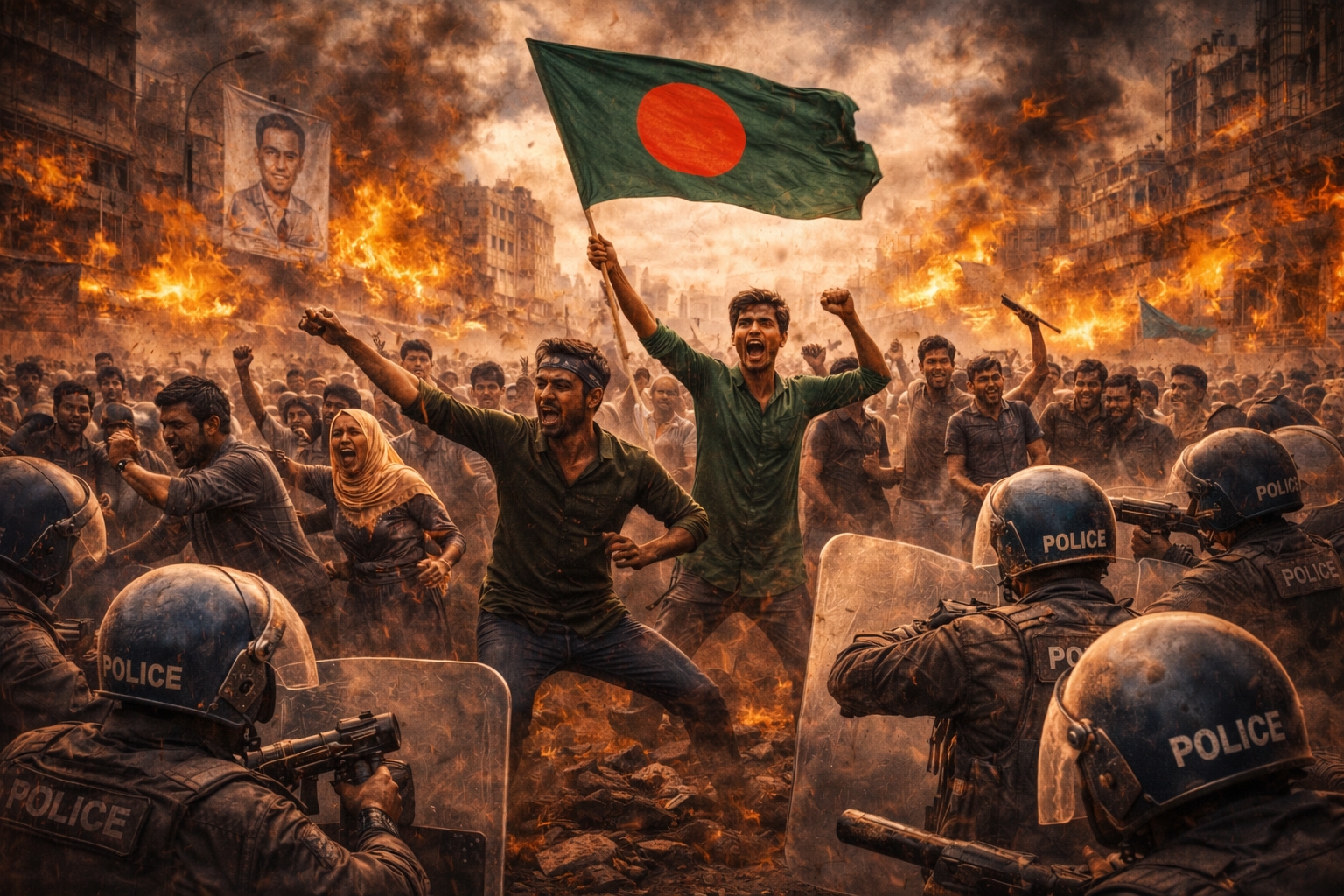All is not well with Bangladesh, thanks to rivalry between the ladies
Empowering Weak & OppressedShamsul Haq
Rajab 15, 1418 1997-11-16
World
by Shamsul Haq (World, Crescent International Vol. 26, No. 18, Rajab, 1418)
As Bangladesh aid donors met in Dhaka on November 4, they got a glimpse of the problems confronting the country. The opposition Bangladesh Nationalist Party (BNP) held a noisy rally in the capital condemning the regime’s performance.
The aid donors, however, had far more serious issues to consider. On the eve of their meeting, the world bank issued a less than satisfactory report on the country’s economic health. This is compounded by the rivalry - nay animosity - between the ladies heading the two major political parties in Bangladesh.
Their enmity is not the result of a mere personality clash. At the root lies allegations that the husband of one (former prime minister Begum Khaleda Zia) was somehow implicated in the murder of the father of the other (current prime minister Hasina Wajed). Whatever the truth of these allegations, their rivalry is affecting the economic health of the country by politically-motivated strikes and disruptions. Local bodies’ polls due on December 1, are likely to add more fuel to the political brush fires.
The world bank report does not directly address the political impasse but refers to the ‘deep-seated’ structural weaknesses plaguing Bangladeshi economy, accompanied by poor policy reforms and a business climate that does not support private sector-led high growth.
Foreign exchange reserves, at US$1.7 billion, are described as ‘critically low.’ Pakistan, with a much greater debt load, would be happy to do a swap. The report further points out that ‘fragility’ of the banking sector poses a ‘threat to macro-economic stability.’
The bank issued its usual list of recommendations: ‘boost industrial activity to sustain high economic growth’ by improving the policy framework and called for sustained macro-economic stability so that the country could exploit the ‘opportunities’. But it cautioned that the already low reserves would face further pressures with prospects for a pick-up in import demand spurred by an expected recovery in industrial activity.
The bright spot in Bangladesh’s economic future lies in attracting a strong foreign direct investment interest, particularly in the energy and telecommunication sectors. In recent months, Dhaka has made a number of announcements about granting concessions to foreign companies for gas and oil exploration in the Bay of Bengal. On November 1, the American company, United Meridian Corporation, started oil and gas exploration in the Chittagong Hill tracts promising to invest $12.4 billion over the next seven years.
But like other ‘third world’ countries, ‘the still-narrow tax base, large scale tax evasion, loss-making public sector and quasi-fiscal losses originating from the banking system’ continue to plague its economic recovery. Revenues had increased marginally, according to the bank; from 11.5 percent of the gross domestic product (GDP) in 1995-96 to 11.7 percent in 1996-97. This helped in the decline of the fiscal deficit, again only marginally, from 5.7 to 5.3 percent.
Foreign exchange earnings come from exports, remittances from workers abroad as well as investment in the energy and telecommunications sectors. Yet with the Middle East monarchies expelling workers en masse - both Abu Dhabi and Saudi Arabia have launched drives against ‘illegal’ workers - this will come as more bad news. Remittances from Bangladeshi workers are a lifeline for millions - families and relatives - back home.
The decline in remittances has been noticeable. From an average of $1.8 billion in 1990, these are down to $1.5 billion in the last two years. With workers returning home from the Middle East, and now perhaps even from Southeast Asia, Bangladesh’s foreign exchange earnings will decline further.
A bumper rice crop for two consecutive years maintained economic growth rate at above five per cent. The GDP growth rate at 5.7 percent was the highest in the 90s but industrial growth was one of the lowest, at 3.6 per cent in 1996-97.
The low industrial performance was attributed by the world bank to power and gas shortages. This in turn affected urea production. Politically-motivated labour unrest, especially pertaining to gasoline price hikes last July, disrupted Chittagong port operations, further undermining the economy.
Such disruptions are not likely to end. The misery index of Bangladesh will, therefore, continue to rise, despite a hardworking population and a higher literacy rate than either India or Pakistan.
Muslimedia: November 16-30, 1997


